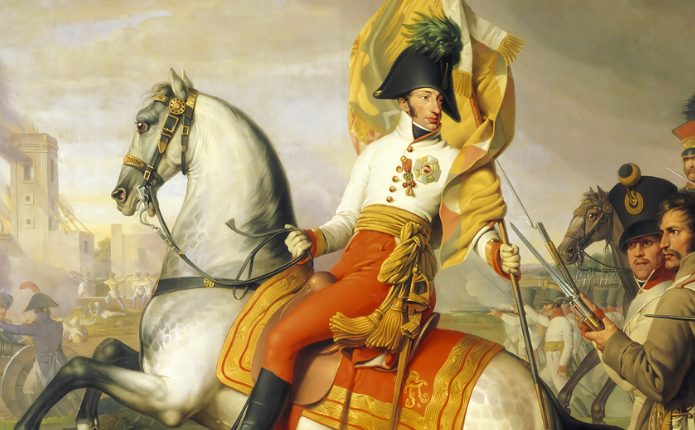Agrippina the Elder, born in 14 BCE, was a prominent and influential figure in ancient Rome. As the granddaughter of Augustus, the first Roman Emperor, and the wife of Germanicus, a beloved Roman general, Agrippina’s life was deeply intertwined with the politics and power struggles of the Roman Empire. Her strength, determination, and legacy left a lasting impact on Roman history.
Early Life and Family Background
Agrippina was born into the Julio-Claudian dynasty, a family that shaped the course of Roman history. She was the daughter of Marcus Vipsanius Agrippa, a close friend and general of Augustus, and Julia the Elder, Augustus’s only biological child. This illustrious lineage placed Agrippina at the heart of Roman power from an early age.
Raised in a period of relative peace known as the Pax Romana, Agrippina was educated in the traditions of Roman nobility, which included a strong emphasis on public service and loyalty to the state. Her upbringing instilled in her a deep sense of duty and an understanding of the intricate politics of the Roman Empire.
Marriage to Germanicus
In 5 CE, Agrippina married Germanicus, one of Rome’s most celebrated generals and a member of the Julio-Claudian family. Their marriage was not only a union of two powerful families but also a partnership built on mutual respect and affection. Germanicus and Agrippina had nine children, including the future Emperor Caligula and Agrippina the Younger, who would become the mother of Emperor Nero.
Agrippina was fiercely loyal to Germanicus and often accompanied him on his military campaigns. Her presence by his side was unusual for a Roman woman of her time, and it demonstrated her dedication to her husband and his career. Agrippina’s strength and courage were evident as she supported Germanicus through various challenges, including his campaigns in Germania and the political intrigues of the Roman court.
The Tragic Death of Germanicus
In 19 CE, Germanicus died under mysterious circumstances while on a mission in the eastern provinces of the Roman Empire. His death was a significant blow to Agrippina and their children. It was widely believed that Germanicus had been poisoned on the orders of Gnaeus Calpurnius Piso, the governor of Syria, possibly acting on behalf of Emperor Tiberius, who saw Germanicus as a rival.
Agrippina was devastated by her husband’s death but remained determined to seek justice. She returned to Rome with Germanicus’s ashes, where she publicly accused Piso and his wife of murder. Agrippina’s quest for justice became a public spectacle, and her popularity among the Roman people grew as she was seen as a symbol of virtue and loyalty.
Political Struggles and Exile
Agrippina’s outspokenness and popularity, however, made her a target for those in power, particularly Emperor Tiberius. Her insistence on avenging Germanicus and her growing influence posed a threat to Tiberius, who began to view her with suspicion.
In 29 CE, Agrippina was accused of plotting against Tiberius and was arrested. She was exiled to the island of Pandateria (modern-day Ventotene), where she was subjected to harsh conditions. Despite her suffering, Agrippina remained defiant, refusing to submit to Tiberius’s authority.
Agrippina’s exile marked a tragic end to her public life. She died in 33 CE, under circumstances that remain unclear, though it is widely believed that she was either starved to death or took her own life to escape her misery.
Legacy
Agrippina the Elder’s legacy is one of resilience, strength, and determination. She was a woman who navigated the treacherous political landscape of Rome with courage and conviction. Despite the many challenges she faced, Agrippina’s loyalty to her family and her unwavering pursuit of justice left a lasting impact on Roman history.
Her descendants, including her son Caligula and grandson Nero, would go on to shape the future of the Roman Empire, for better or worse. Agrippina’s life serves as a testament to the power and influence that women could wield in ancient Rome, even in the face of overwhelming odds.
Agrippina the Elder stands as a powerful figure in the history of the Roman Empire. Her life, marked by personal tragedy and political intrigue, reflects the complexities of power and the role of women in a male-dominated society. Through her unwavering commitment to her family and her pursuit of justice, Agrippina carved out a legacy that continues to be remembered and studied by historians today.




